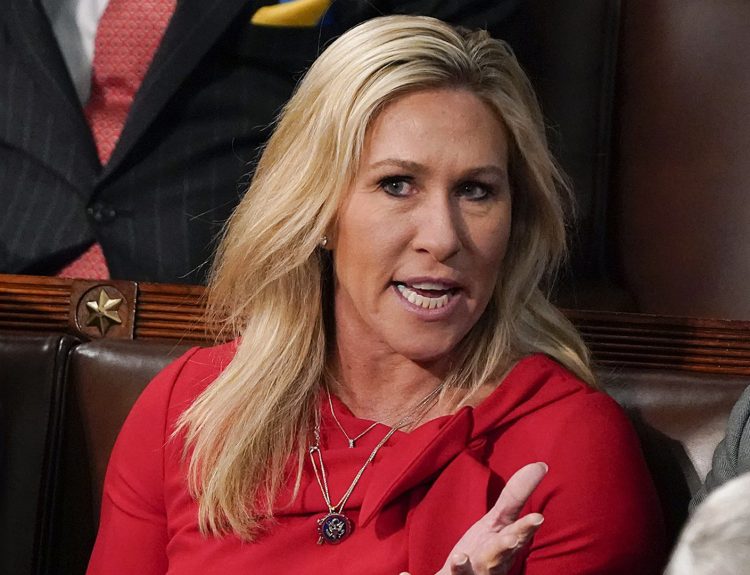The 2024 election season is already shaping up to be a nail biter. Between the turmoil in the House of Representatives that has many predicting that the chamber will flip blue this November and a hotly challenging matchup between former President Donald Trump and President Biden, this November is looking to be one for the books.
Electoral Map Challenges Abound
This year’s election season is looking to be particularly eventful after multiple states across the country saw challenges to their electoral maps since the election of 2020. Multiple conservative states, having been accused of gerrymandering, had their electoral maps taken to court, and many of them lost.

Gerrymandering is the practice of drawing a district or voting map in such a way as to achieve a particular goal. For many districts, this has looked like Republicans drawing state maps in such a way that districts are essentially a shoe-in for a Republican win, with no challenge necessary.
Newly Redrawn Districts
Multiple states have seen their districts redrawn due to maps that have been found to be unfairly gerrymandered by one party or the other. Among these states are New York, Alabama, Virginia, and Wisconsin.

These newly redrawn maps have provided a unique opportunity for liberals going into election season. Many states whose maps have been obligated to be redrawn have been historically very conservative, and these new voting districts could have a significant effect on the balance of power in the House of Representatives.
Challenges for the Republican Party
Given the slim majority that Republicans hold in the House, it’s understandable why this might be a concerning prospect. Republicans have already seen the loss of several seats through resignation and – in the case of former Representative George Santos – removal of office.

Newly redrawn district maps could make holding onto their majority this fall even more challenging. Alabama is one such state that could make things more difficult for Republicans in the wake of their new electoral maps, and the state has been the center of a good deal of discourse surrounding voting rights.
Conversations Around Gerrymandering
The discourse has centered around one issue, and one issue only. The Alabama Republican legislature drew an election map that state courts determined were heavily gerrymandered in favor of the Republican party, and the map was immediately challenged by Democrats who believed that Republicans were violating federal law.

Lower courts agreed with the sentiment, and the case was appealed all the way up to the Supreme Court. The sticking point of the maps was that Alabama is a state with a significant number of Black Americans, and the electoral map didn’t provide an equal opportunity for these residents of Alabama to see their voices appropriately heard.
A Two Year Legal Battle
The legal fight was high profile and lasted for the better part of two years. The goal of the battle was to give Black Alabamans a realistic chance of electing their preferred candidate in a proportionate number of districts to their percentage of the population, in line with the Voting Rights Act.

The initial maps that were drawn by the Republican State legislature, allowed for one majority Black district out of Alabama’s seven. However, Black Americans make up nearly 30% of the state population, making this a deeply unfair arrangement that mitigates the vote of these individuals in favor of consolidating political power.
Ordering a Redrawn Map
The Alabama State Supreme Court held that the initial voting maps were unfair, and ordered the Republican State legislature to draw new maps that allowed for a second Black-majority district in the state. This request was taken all the way up to the federal Supreme Court, who ultimately agreed with the ruling of the state Supreme Court.

Despite this, the fight was not over. Republicans in Alabama drew a new district map as they were ordered, but the new map was just as heavily gerrymandered as the one that they had been ordered to replace. It didn’t contain a new Black majority district that would put the map in line with the provisions of the Voting Rights Act, and the new map was taken to the Supreme Court again.
Another Ordered Map, Independently This Time
Again, the map was ordered to be redrawn. This time, though, an independent commission was tasked with the job, preventing Republicans in Alabama from attempting another round of legal gerrymandering with the voters in Alabama.

The new districts went into effect for the 2024 election season, and necessarily, there has been some shuffling of state representation at the ballot. This shuffling led to a head-to-head competition between two current Representatives of the House, and this week, the first incumbent primary loss was seen in the 2024 election season.
A Republican v. Republican Matchup
Representative Barry Moore, in a sweeping Super Tuesday victory, defeated Representative Jerry Carl in the rare incumbent-vs.-incumbent Republican primary in Alabama. This makes Carl the first House representative to lose their primary in this election cycle, though it’s certain that he won’t be the last.

Moore has represented his district in Alabama since first being elected in 2020, and is a staunch Donald Trump loyalist. His victory is a significant win for the House Freedom Caucus, the far-right group that frequently go head-to-head with establishment Republicans.
A Significant Win for the Freedom Caucus
His win was touted as a significant get by others in the House Freedom Caucus. Marjorie Taylor Greene (R-GA) campaigned alongside Moore the weekend ahead of his Super Tuesday win, arguing that Moore was a more loyal Trump follower than Carl.

“Barry Moore is President Trump’s man in Washington and has been from the very beginning. His entire family has, and he has never wavered,” she said, praising Moore’s loyalty to Trump.
Carl: Slightly More Moderate
Jerry Carl, on the other hand, is a powerful member of the Appropriations Committee and the Republican Study Committee. He is more closely aligned with the business wing of the party, and has been more traditionally associated with more moderate conservative values.

Despite this, Carl, like Moore, was endorsed by Donald Trump ahead of his re-election to the House in 2022. Both men are objectively deeply conservative, meaning that regardless of who took the ticket for this newly drawn house seat, it would be a win for the Republican party.
An Unusual Contest in Modern Politics
The Republican to Republican challenge is an unusual development in modern politics, and only came in the wake of the newly redrawn districts. Moore currently represents Alabama’s 2nd congressional district, and the new redistricting rules combined large swaths of the second and first districts into a new 1st District.

This new district spans the majority of the southern portion of the state, and is deeply conservative across the board. Even if neither incumbent were to run for re-election in this new district, it’s likely that the seat would have still gone to a Republican.
Democrats Seeing Wins, Too
The first incumbent loss of the election season is not the only surprise that will be seen out of Alabama this election season. The new Congressional map allows for a second Black-majority district the instate, per the Supreme Court ruling, and the balance of power in the House of Representatives is up for grabs.

Black Americans tend to vote for Democrats, meaning that it’s likely that this new District will vote blue in the coming season. Democrats holding two of the seven congressional seats will be a significant shift in power for the deeply conservative state, and many people are watching closely to see how this development will shift power for both the legislature and Alabamans.
Moderate Republicans Have Their Work Cut Out for Them
Carl’s loss of his primary is unfortunate for those hoping to see a realignment closer to center this election season. Far-right conservatism has polarized much of America and the Republican party, and it doesn’t appear that the movement is going anywhere, anytime soon.

This only means that individuals such as Carl and other mainstream Republicans will have to fight harder to keep their foot in the door going forward. It would be easy to say that moderate values will always have a place in America, but if this week’s election proves anything, it’s that the individual with the loudest voice and the most influence will always come out on top.






